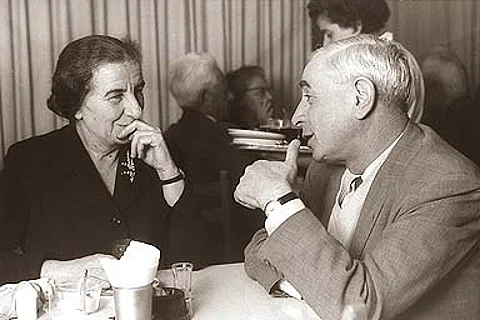

The Mossad and Shin Bet—along with other Israeli intelligence agencies—are widely regarded as among the most professional security services in the world. Yet, alongside their many triumphs, they have also experienced significant failures—the first of which was the Lavon Affair.
In 1954, less than a decade after the War of Independence, Israel launched a covert operation in Egypt intended to bomb civilian targets, blame Egyptian groups, undermine the Egyptian government, and provide a casus belli for the continued British occupation of the Suez Canal.
Following the Second World War, the Suez Canal had become the largest staging and hosting ground for British forces, with over 80,000 soldiers stationed in the region. A low-intensity insurgency broke out in the years after the war, resulting in the deaths of more than 60 British troops and injuring hundreds. However, within the framework of the new international order—and given the reluctance of both emerging superpowers, the United States and the Soviet Union, to support colonialism—Britain's presence in Egypt was seen as temporary.
The Lavon Affair was designed to change that narrative. By fabricating extremist violence and bombings, the operation aimed to create a justification for continued British military presence in Egypt. However, the mission ended in complete failure and was so controversial that it was not officially acknowledged by Israeli authorities until 2005.
Officially known as Operation Susannah, the mission was carried out by Israeli military intelligence—specifically Unit 131 of Aman. It recruited Egyptian Jews to plant bombs in civilian locations such as cinemas and libraries, with a particular focus on foreign educational and cultural centers—primarily American ones, including the U.S. Information Agency libraries in Alexandria and Cairo. The plan was to attribute the attacks to various local groups. In the politically fragmented landscape of 1950s Egypt—dominated by Communists, Socialists, religious parties, centrists, the Wafd Party, the Muslim Brotherhood, and the Free Officers Movement—there were many plausible scapegoats. The ultimate objective, however, was singular: to damage Egypt’s relations with the West.
The operation unraveled when Egyptian counter-intelligence successfully apprehended the operatives. Two of them took their own lives while in custody. Two others were tried, sentenced to death, and executed. The remaining agents were imprisoned—some served out their sentences, while others were eventually released or exchanged.
The aftermath of the operation was far from desirable for Israel. Defense Minister Pinhas Lavon—after whom the affair was later named—resigned, and Prime Minister Moshe Sharett also stepped down. The incident triggered intense political infighting among Israeli factions that would continue for some time.
As previously mentioned, the operation had serious diplomatic repercussions. Israel's relations with both the United States and the United Kingdom were notably strained in its wake. These tensions persisted until the 1956 Tripartite Aggression, when the nations temporarily set aside their differences to pursue mutual strategic interests.
By all legal standards, the Lavon Affair constituted a coordinated attempt to carry out terrorist bombings against civilian infrastructure—an act of political terrorism with no legitimate justification beyond its intended strategic aims.
Nine Egyptian Jews were recruited for Operation Susannah, which was set to begin in 1954. The recruits had been selected as early as 1952 and were sent to Israel for training. Over the course of two years, they were instructed in sabotage techniques, photography, and espionage before being sent back to Egypt to carry out the mission, involved with them were three Israeli officers.
However, the operation unraveled almost immediately. A mistimed bomb detonated en route to a target in Alexandria, leading to the arrest of the first operative—largely by chance. Under enhanced interrogation methods employed by Egyptian intelligence, authorities were able to apprehend the rest of the network before any significant damage was done. Two of the operatives, Moshe Marzouk and Shmuel Azar, were executed by hanging in 1955. Two others, Yosef Carmon and Max Bineth, died by suicide while in custody—not, it appears, to protect intelligence, but rather due to the psychological toll of their imprisonment.
The political fallout in Israel was complex and far-reaching. Prime Minister Moshe Sharett was replaced by David Ben-Gurion. Pinhas Lavon was accused of authorizing the operation unilaterally. One Israeli commission of inquiry reached no conclusive findings, while a second cleared Lavon of wrongdoing—a verdict Ben-Gurion vehemently rejected. The disagreement contributed to Ben-Gurion's eventual resignation as Defense Minister in 1963. Lavon, meanwhile, was effectively forced into political exile and never returned to a significant role in Israeli politics.
The head of IDF military intelligence was dismissed and replaced, and the officer responsible for training the Egyptian operatives was sentenced to ten years in prison. He later emigrated to the United States in 1972.
The Lavon Affair also marked one of the earliest known instances of a post–World War II false flag operation. It was later referenced in private conversations between Henry Kissinger and General Brent Scowcroft as a case study in how such operations might be employed to serve U.S. interests. Given the United States’ controversial history with alleged false flag events, one would usually raise a very enduring question - just how many such operations may have been conducted under similar pretenses?